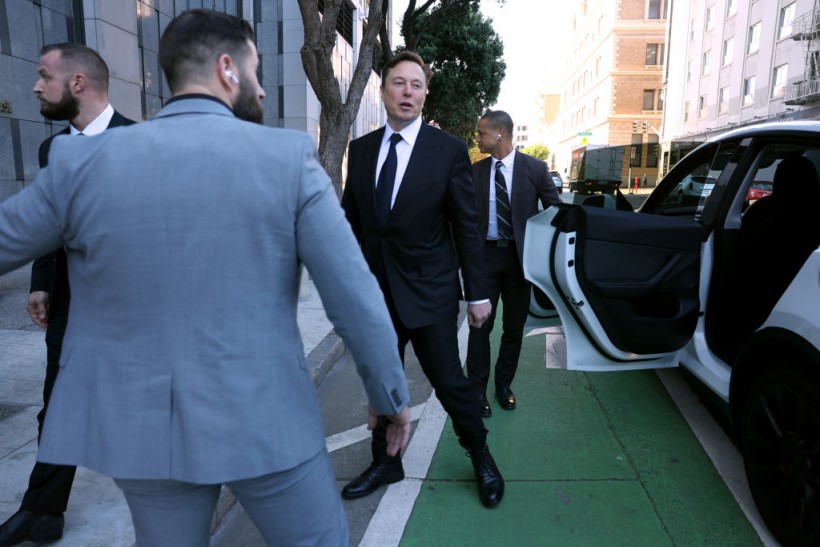Elon Musk, the CEO of Tesla, revealed that they would start the development of a permanent magnet electric vehicle engine. The announcement was made at its investor day 2023, as reported by Interesting Engineering.

(Photo : by Justin Sullivan/Getty Images)
SAN FRANCISCO, CALIFORNIA - JANUARY 24: Tesla CEO Elon Musk leaves the Phillip Burton Federal Building on January 24, 2023 in San Francisco, California. Musk testified at a trial regarding a lawsuit that has investors suing Tesla and Musk over his August 2018 tweets saying he was taking Tesla private with funding that he had secured.
Magnetic Engine for Tesla
The magnetic engine will not contain any rare Earth elements, and this is also due to the struggles of obtaining supplies. It is also because China accounts for a huge chunk of the global production in which rare Earth elements are a source of friction in the EV supply chain today.
In addition, the Biden Administration is also promoting materials made locally for EV components.
Initially, Tesla vehicles were powered by AC induction motors that did not require rare earth elements. However, when Model 3 was released, Tesla launched a new permanent magnet motor and began using it in all of its other vehicles.
With Tesla's most recent announcement, the new magnet engine will significantly improve the efficiency of the drivetrain will cut the use of rare earth elements by 25 percent in new Model 3 drive units.
Now, Tesla seems to be attempting to combine the permanent magnet motor without rare earth elements.
Tesla didn't give much detail regarding the materials that it employs because they could be a trade secret. However, the first number represents Neodymium, and Terbium and Dysprosium.
The engine will have a permanent magnet, but Tesla hasn't made it clear which mineral it will employ.
Also read: Tesla Builds a New Power Plant in Japan Using Powerwalls Home Battery Pack
Rare Earth Elements for EV Components
Rare Earth Elements are the building blocks of a wide range of components used in electric vehicles. They are used in motors, batteries, and other parts of an EV. They are also used to manufacture magnets, sensors, and other critical components. Rare Earth Elements are key components of EV motors and batteries.
Neodymium is used for making powerful magnets, which are used in electric motors and power steering systems. Dysprosium and Terbium are used for making smaller, more powerful magnets, which are used in electric motors and generators. Lithium is used to make batteries, which are used to store energy in EVs and HEVs.
Tesla has used a variety of rare earth elements in its electric vehicles, including neodymium, dysprosium, terbium, and praseodymium. These elements are mainly used in the motors, batteries, and other components that make up electric vehicles.
Neodymium is used to create the powerful permanent magnets that are needed to create the electric motors, while dysprosium and terbium are used to increase the strength of the magnets. Praseodymium is often used to increase the efficiency of electric motors, as well as to reduce the amount of heat generated by them.
Related article: Elon Musk Unveils Tesla Master Plan Part 3: What's it All About?










